Key Design Elements for Styling a Living and Dining Room Combo
Open-plan living is a dream come true for some homeowners, …
Open-plan living is a dream come true for some homeowners, …
Mid century modern coffee table designs became popular in the mid-20th century due …
Bring Neutral Colors for House Interior into the Twenty …
When taking on the task of utilizing space, a kitchen island with …

Table of Contents
ToggleGlass tables have long been symbols of elegance, offering an airy aesthetic making even studio spaces feel open and inviting. Yet, in feng shui, the art of harmonizing settings, doubt has circulated. Are glass tables actually “bad” feng shui, harbingers of disharmony and disrupted energy flow? Or is this merely a misconception, a misunderstanding of how glass can be utilized to enrich our homes?
This article aims to demystify the connection between glass coffee tables and feng shui, debunking common myths and offering a balanced perspective on their role in your home’s energy. We’ll delve into the ways glass impacts the flow of chi, the life force feng shui seeks to optimize, while exploring potential drawbacks, unexpected benefits, and tips on how to harness their strengths while mitigating any negative effects.
By the end, you’ll have a clearer understanding of whether a glass coffee table is a friend or foe to your home’s feng shui, empowering you to make decisions on featuring this element within your interior.
To grasp the interplay between glass tables and feng shui, it’s essential to understand the underlying principles. At its core, feng shui is about cultivating harmony and balance within a space to promote well-being and prosperity. It’s a practice rooted in the Taoist philosophy of interconnectedness, where the energy within our homes is believed to directly influence our lives.
Central to feng shui is the concept of Chi, often translated as “life force” or “energy flow.” Chi is the vital energy animating all living things, and it’s believed to flow through our homes. A well-designed space allows chi to flow smoothly, nurturing peace and vitality. Contrarily, stagnant or blocked chi can lead to feelings of unease and misfortune.
Feng shui also recognizes five elements: Wood, Fire, Earth, Metal, and Water; each possessing unique qualities associated with specific colors, shapes, and materials. The purpose is to create a balanced environment where all five elements are represented and in proportion.
Now, where does glass fit into this system? In feng shui, glass is primarily associated with the Water element. Water symbolizes fluidity, adaptability, and reflection. It’s a powerful force that nourishes and cleanses, but it can also be destructive and unpredictable. Glass, with its reflective surface and transparent nature, embodies these qualities.
The dual nature of water is mirrored in the characteristics of glass. On one hand, a glass table can enrich a space by forming openness and reflecting light, promoting a positive flow of chi. On the other hand, its hard, cold surface and potential for instability can disrupt the grounding energy feng shui strives to formulate.
While glass tables possess aesthetic appeal, their very nature presents hidden challenges within the framework of feng shui. The qualities of glass, particularly its hardness, transparency, and reflectiveness create subtle disruptions to the flow of chi.
A glass table’s hard, angular edges and cold exterior introduce a feel of rigidity to a space. In feng shui, gentle curves and soft textures are preferred as they encourage a smooth, meandering flow of chi. The sharp lines of a glass table can act as obstacles, causing chi to stagnate or scatter, potentially leading to feelings of disharmony.
The transparency of glass can produce a visual void. In feng shui, solidity and grounding are valued, as they promote feelings of security. A glass table, with its see-through surface, can diminish this groundedness, making a room feel less secure and potentially leading to a subconscious feeling of vulnerability.
It’s important to note that these are potential drawbacks, and not every glass table will necessarily create negative feng shui in these spaces. The severity of the impact can vary depending on factors like the table’s size, design, and placement, as well as the feng shui of the setting.
Contrary to the flaws, glass tables can also be powerful allies in developing a feng shui-friendly environment. Their unique properties, when correctly harnessed, can amplify specific areas and contribute to a congruous atmosphere.
One of the more notable benefits is their ability to intensify light and create spaciousness. In rooms with limited natural light or square footage, a glass table can act as a beacon, refracting and scattering light to brighten and expand the space. This can be especially advantageous in areas like hallways, entryways, or corners where natural light may be scarce.
The reflective nature also contributes to the illusion of a larger space. By mirroring the surrounding environment, a glass table effectively doubles the visual area, creating an open, airy ambiance that feels less cramped and more inviting. This can be particularly valuable in apartments or homes with compact layouts.
Furthermore, glass tables align seamlessly with modern aesthetics. Their clean lines, minimalist design, and uncluttered build complement contemporary interiors, contributing to order and sophistication. The transparency allows for a visual connection between different elements in a room, nurturing a cohesive aura.
In spaces where the focus is on creating a light, airy, and minimalist aesthetic, glass can be an ideal choice. Plus, it can serve as a statement piece in a modern living room, a sleek addition to a minimalist bedroom, or a functional yet elegant feature in a contemporary office.

Photo by Wirestock_creators from Freepik
Integrating a glass table into your home’s feng shui requires clever consideration of placement, material, design, and complementary elements. By understanding these factors, you can harness the positive attributes of glass while mitigating deficiencies.
The location plays a pivotal role in its feng shui impact. Avoid placing glass tables in areas where stability and grounding are paramount, this could be the main dining table or a child’s bedroom. Instead, consider using them as accent pieces in areas that benefit from their light-enhancing properties.
The glass type and the table design can influence its feng shui energy.
Pairing your table with complementary elements can form a unified environment.

Photo by Frolopiaton Palm from Freepik
The debate around glass tables in feng shui is not without its complexities, as experts hold varying opinions and cultural interpretations further enrich the discussion.
Renowned feng shui consultant and author, Kathryn Weber, acknowledges the potential challenges of glass tables, stating, “Glass can create a sense of instability and may not be the best choice for areas where you need a solid foundation, like a dining table.” However, she also recognizes their potential benefits, adding, “Used strategically, glass can be a wonderful tool for reflecting light and creating a sense of spaciousness.”
Similarly, Master Yap Cheng Hai, a prominent figure in the world of feng shui, advises caution with glass tables, particularly in the bedroom and dining room. He suggests, “If you must use a glass table, opt for frosted or textured glass to minimize its reflective qualities and pair it with grounding elements like wood or metal.”
Master Angela Ang, a respected feng shui practitioner based in Singapore, offers a more nuanced perspective. She emphasizes the importance of personal preference and the overall feel of a space. “Feng shui is about creating a home that feels good to you,” she says. “If a glass table brings you joy and doesn’t create a sense of unease, it can be a positive addition to your home.”
In Chinese culture, glass has historically been associated with fragility and impermanence, with some traditional feng shui schools therefore discouraging its use in the home. However, modern interpretations of feng shui are often more flexible, acknowledging the changing aesthetics and materials of contemporary living. In Western culture, glass is often associated with modernity, cleanliness, and openness. It can be seen as a symbol of transparency and clarity, which aligns with some of the goals of feng shui practice.
The key takeaway here is that a glass table’s feng shui impact depends on many factors: placement within the home, material and design choices, and the surrounding decor. As Master Angela Ang aptly puts it, “Feng shui is about creating a home that feels good to you.” If a glass table resonates with your aesthetic preferences and doesn’t produce unease, it can certainly find a place in your home.
The decision of whether or not to embrace a glass table in your home is a personal one. By understanding the nuances of both glass and feng shui principles, you can make an informed choice that aligns with your individual needs, preferences, and the unique energy of your living space.
Before rushing to replace your beloved glass table, take a moment to assess your specific situation. Consider the table’s location, material and design, and the room’s overall feel. Experiment with different placements, incorporate complementary elements like wood or fabric, and most importantly, trust your intuition.
Remember, feng shui is a dynamic and personalized practice. There are no rigid rules, only guidelines, and principles to help you create a home that nurtures your well-being and supports your aspirations. The most important factor is to create a space that feels authentically yours, where you can thrive and flourish.
| Cookie | Duration | Description |
|---|---|---|
| _GRECAPTCHA | 6 months | Google Recaptcha service sets this cookie to identify bots to protect the website against malicious spam attacks. |
| cookielawinfo-checkbox-advertisement | 1 year | Set by the GDPR Cookie Consent plugin, this cookie records the user consent for the cookies in the "Advertisement" category. |
| cookielawinfo-checkbox-analytics | 1 year | Set by the GDPR Cookie Consent plugin, this cookie records the user consent for the cookies in the "Analytics" category. |
| cookielawinfo-checkbox-functional | 1 year | The GDPR Cookie Consent plugin sets the cookie to record the user consent for the cookies in the category "Functional". |
| cookielawinfo-checkbox-necessary | 1 year | Set by the GDPR Cookie Consent plugin, this cookie records the user consent for the cookies in the "Necessary" category. |
| cookielawinfo-checkbox-others | 1 year | Set by the GDPR Cookie Consent plugin, this cookie stores user consent for cookies in the category "Others". |
| cookielawinfo-checkbox-performance | 1 year | Set by the GDPR Cookie Consent plugin, this cookie stores the user consent for cookies in the category "Performance". |
| CookieLawInfoConsent | 1 year | CookieYes sets this cookie to record the default button state of the corresponding category and the status of CCPA. It works only in coordination with the primary cookie. |
| elementor | never | The website's WordPress theme uses this cookie. It allows the website owner to implement or change the website's content in real-time. |
| rc::a | never | This cookie is set by the Google recaptcha service to identify bots to protect the website against malicious spam attacks. |
| rc::b | session | This cookie is set by the Google recaptcha service to identify bots to protect the website against malicious spam attacks. |
| rc::c | session | This cookie is set by the Google recaptcha service to identify bots to protect the website against malicious spam attacks. |
| rc::f | never | This cookie is set by the Google recaptcha service to identify bots to protect the website against malicious spam attacks. |
| Cookie | Duration | Description |
|---|---|---|
| _ga | 1 year 1 month 4 days | Google Analytics sets this cookie to calculate visitor, session and campaign data and track site usage for the site's analytics report. The cookie stores information anonymously and assigns a randomly generated number to recognise unique visitors. |
| _ga_* | 1 year 1 month 4 days | Google Analytics sets this cookie to store and count page views. |
| Cookie | Duration | Description |
|---|---|---|
| elfsight_viewed_recently | less than a minute | Description is currently not available. |
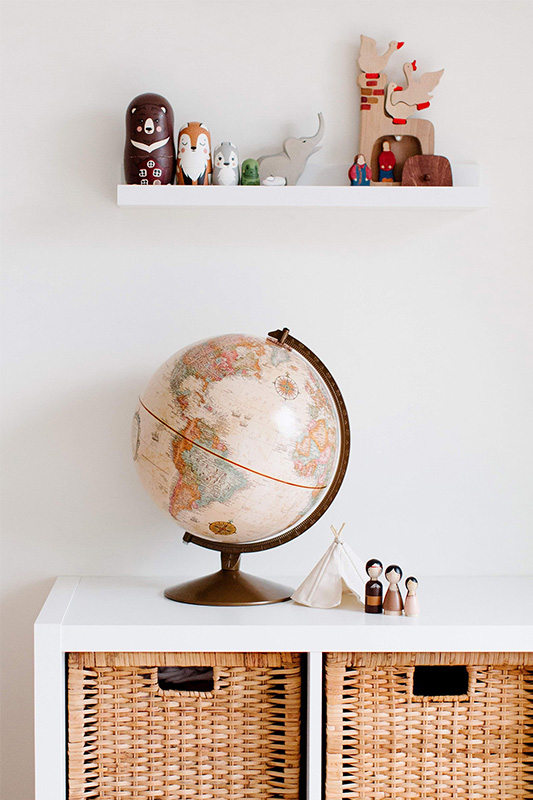
Safeguard your home with the right coverage. Don’t leave yourself vulnerable – gain your peace of mind.
We’d love to hear from you. Want to get in touch? Error: Contact form not found.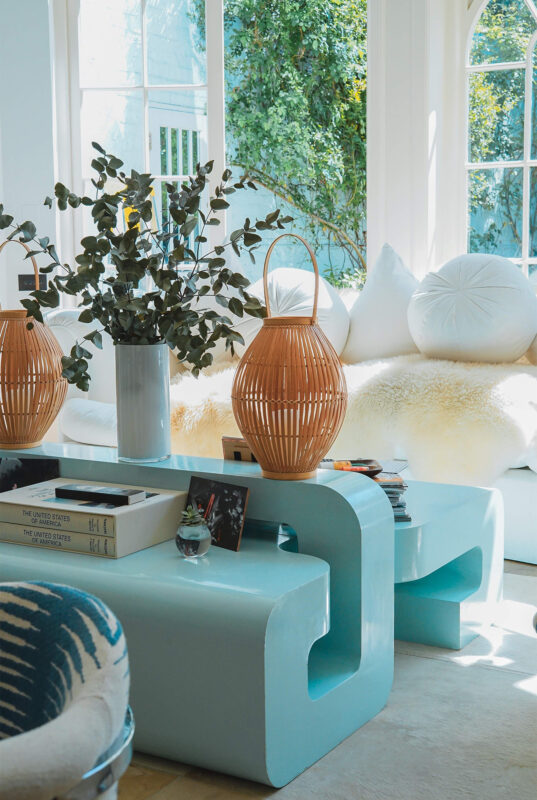
Get in Touch
Let DeCasa Collections open the door for you to live your creativity and passion throughout your home. We invite you to discover new ways to make your space flourish with color, style, and personality without massive expense. From our range of bespoke, affordable kitchenware collections through to our elevated and timeless decorative options, DeCasa has everything you need to make your home a space where everyone belongs.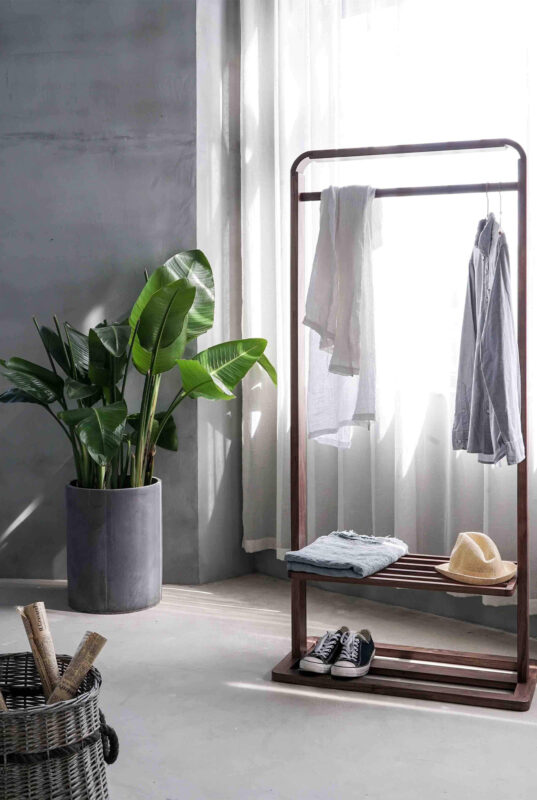
A Home Full of Ideas
Your living room is the heart of your home. What are the best ways to make it feel calm, rejuvenating, and welcoming? At DeCasa, the answer is timeless. We specialize in inviting home decor: neutral colors with pops of vibrancy, pared-back furniture, and elegant, minimalist homeware that feels curated with you in mind. Let DeCasa Collections open the door for you to live your creativity and passion throughout your home. We invite you to discover new ways to make your space flourish with color, style, and personality without massive expense.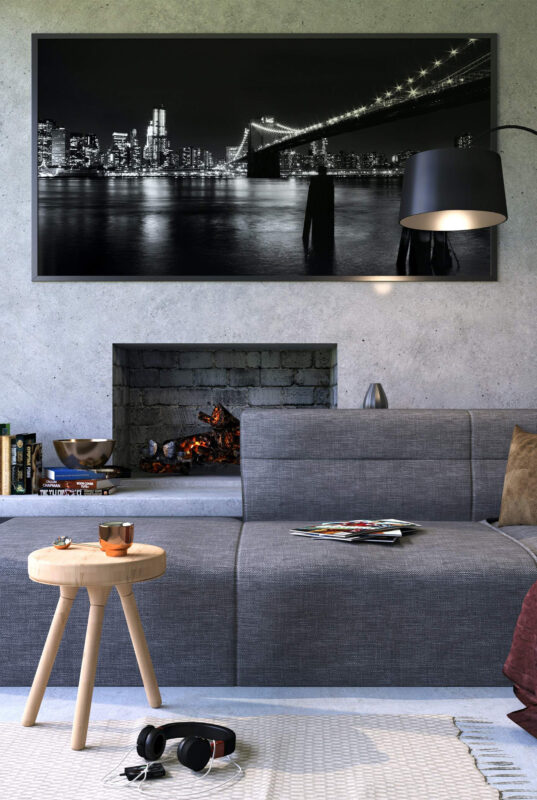
It’s Timeless.
DeCasa Collections has been rejuvenating homes with bespoke and ever-evolving home decor solutions for the past 2 years. We pride ourselves in offering classic and timeless homeware, suitable for a range of lifestyles, from on-the-go to working from home, all sourced from the resilient, premium materials – with DeCasa Collections, you can buy with confidence. We invite you to explore our dynamic range of the best quality homeware products, delivered straight to your doorstep. Why not bring quality home? We go further than the kitchen and living room, we are a rapidly diversifying design and home decor service, setting the trend for the best online homeware stores across the country. We value accessible luxury, therefore we deliver nationwide, as we strive to ensure that everyone is able to build a home that they can feel truly at home in. Our products are sourced from high-end materials but they prioritize functionality and classic as opposed to contemporary designs – this means that we can ensure affordable solutions for you and your home. Start a conversation today and See how our range can meet your homeware needs.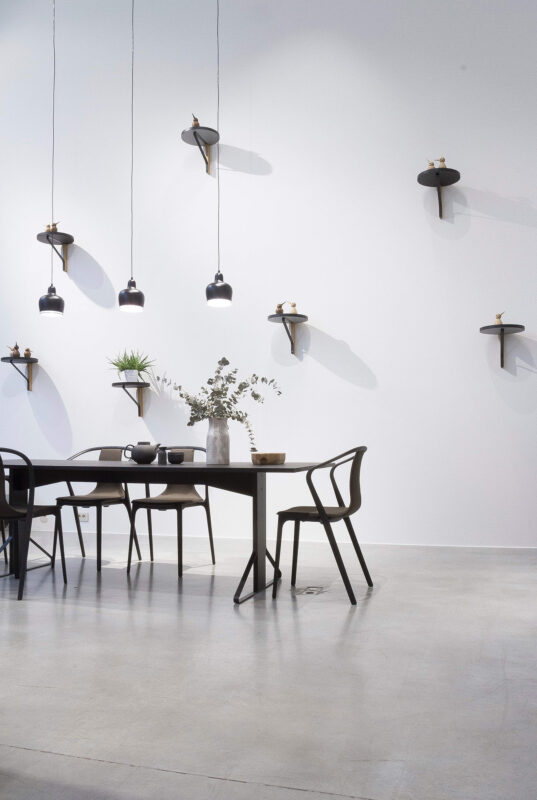
Simplicity at its Finest
Your kitchen is where memories are made: where glasses are clinked, where friends are brought together, and where kids are brought up. It’s a space that should feel open, warm, and nurturing. At DeCasa the answer is minimal. Sleek, stylish kitchenware designed with your lifestyle in mind. From entertaining to cooking up a storm, you need kitchenware that will stand the test of time and match the pace of your life. And why not fuse elegance and functionality into every moment along the way? From our range of bespoke, affordable kitchenware collections through to our elevated and timeless decorative options, DeCasa has everything you need to make your home a space where everyone belongs.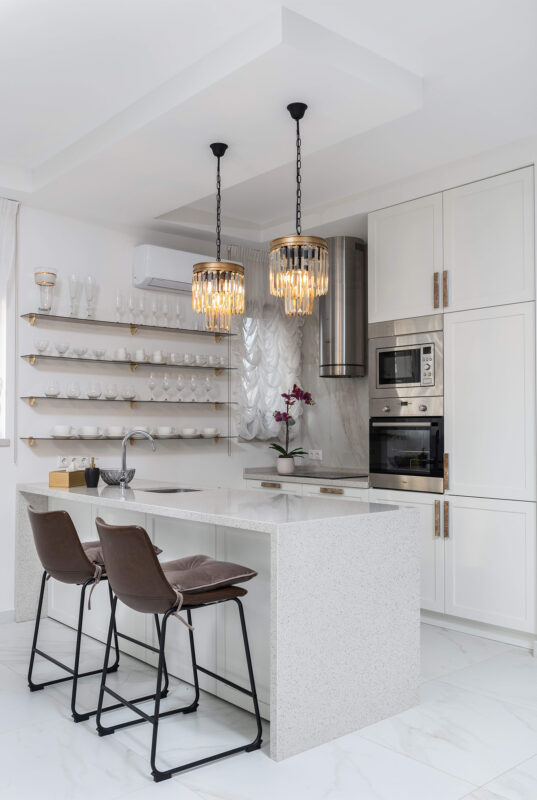
It’s Minimal.
DeCasa Collections brings people together. We take every opportunity to improve our products and our services – we aim to become one of the nation’s home decor companies par excellence. We prioritize our relationship with you – we strive for flawless interactions with our team and immaculate aftercare. We insist on ensuring you feel valued throughout the home decor process and that you are satisfied every step of the way. We are approachable, professional and we want your home to flourish. We have an eye for detail and an individuated approach to your home – our products are uniquely produced homeware sets, centered around classic, rejuvenated household designs. They are versatile, high-end, and always functional. We put in the time to choose premium materials so you don’t have to. We understand that we’re not your typical homeware brand – and we’re proud not to be! We specialize in making sure you can purchase with confidence, so we have put all of our energy into developing an online store that you can access across the nation. We also value your commitment to us – none of our products will suffer from slow delivery times as we have expedited services available. Not to mention we offer a money-back guarantee and 12 months warranty if you’re not convinced our homeware will stand the test of time.
Bring Your Home To Life
Our Values


